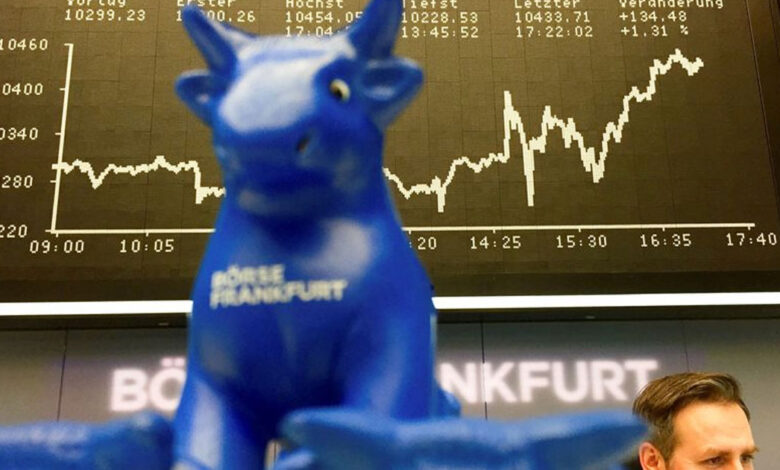European Stock Markets Set to Open Higher as US Debt Bill Passes Congress

European stock markets are expected to open on a positive note on Friday following the successful passage of the U.S. debt ceiling bill through Congress. This development averted the potential disaster of a default that could have had severe global economic consequences.
As of 02:00 ET (06:00 GMT), futures contracts indicate a rise in the DAX by 0.5% in Germany, a 0.5% climb in the CAC 40 in France, and a 0.3% increase in the FTSE 100 in the U.K.
Late on Thursday, the U.S. Senate approved legislation to suspend the government’s $31.4 trillion debt ceiling for two years, just a day after the bill had been passed by the House of Representatives. The bill now awaits signing into law by President Joe Biden at the White House, effectively removing a major source of market anxiety over the past month, as the June 5 default deadline loomed.
Market sentiment in Europe has also been bolstered by news that eurozone inflation decreased more than anticipated in May. The inflation rate dropped from 7.0% in April to 6.1%, below the expected decline to 6.3%. This development increases the likelihood of the European Central Bank (ECB) raising interest rates by 25 basis points on June 15, adding to the cumulative 375 basis points of hikes implemented over the past year to address rising prices.
Nevertheless, the latest inflation figures have sparked a debate about the extent to which the ECB will tighten its monetary policy. While ECB President Christine Lagarde has suggested the need for further hikes, Executive Board member Fabio Panetta has indicated that the central bank may not have much further to go, stating, “I think now is not the time to go too fast, because we have already come a long way… We have not yet reached the final destination, but we are not far from it,” in an interview with Le Monde published on Friday.
Later in the day, the release of French industrial production data is expected to contribute to the ongoing discussion. It is anticipated to show a 0.3% increase in April compared to a 1.1% decline the previous month.
However, the main economic focus of the day will be on the release of the U.S. nonfarm payrolls report. Forecasts suggest that the report will reveal an addition of 180,000 jobs in May, providing crucial information ahead of the Federal Reserve’s June meeting. The data could influence the central bank’s decision regarding its aggressive monetary policy or the possibility of pausing its 14-month rate hiking campaign.
Oil prices experienced an increase on Friday following the approval of the U.S. debt ceiling bill, which eliminated the threat of a significant blow to global economic activity. However, the growth was restrained by official data indicating an unexpected rise of approximately 4.5 million barrels in U.S. crude inventories over the past week, indicating elevated supply and weakening demand, despite the commencement of the travel-intensive summer season.
This weekend, the Organization of Petroleum Exporting Countries and its allies, collectively known as OPEC+, will convene for their latest meeting, creating uncertainty surrounding their plans for future production levels.
At 02:00 ET, U.S. crude futures climbed 1% to $70.78 per barrel, while the Brent contract rose 1% to $75.00. Furthermore, gold futures saw a 0.1% increase, reaching $1,997.20 per ounce, and the EUR/USD pair traded 0.1% higher at 1.0771.





